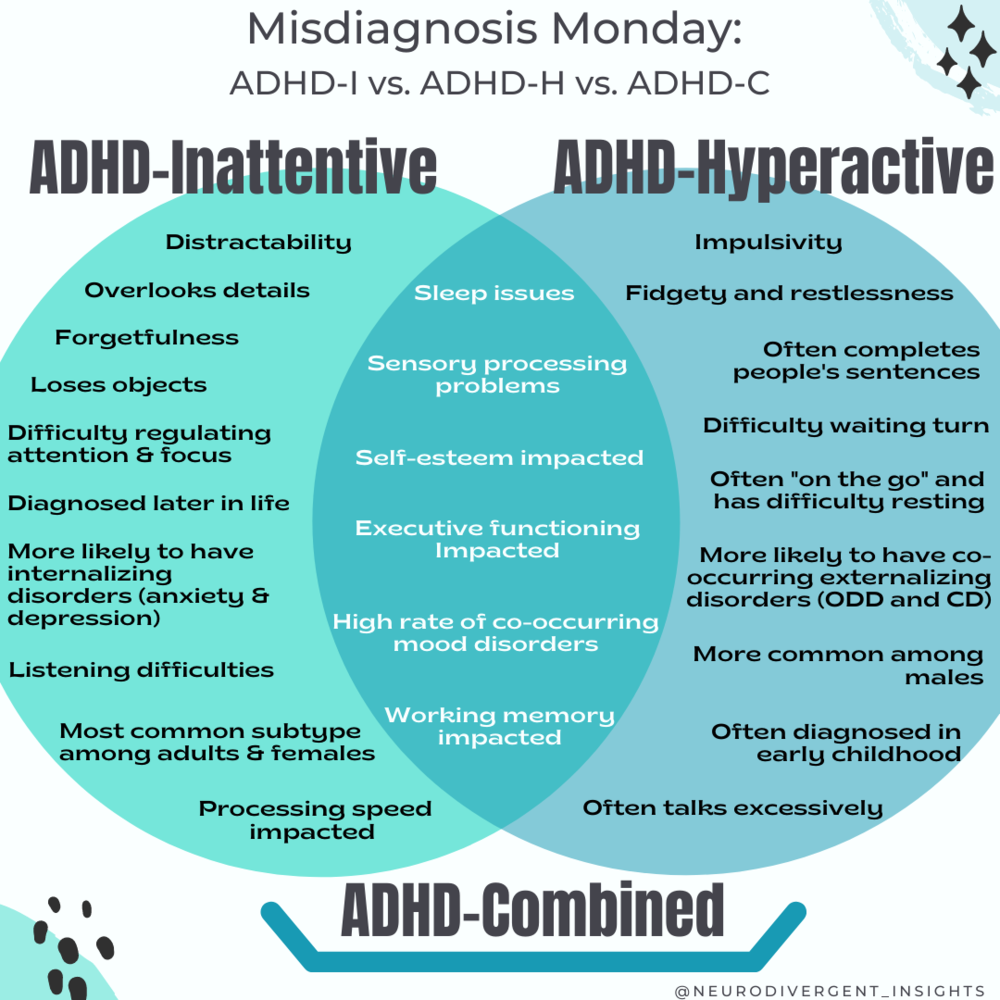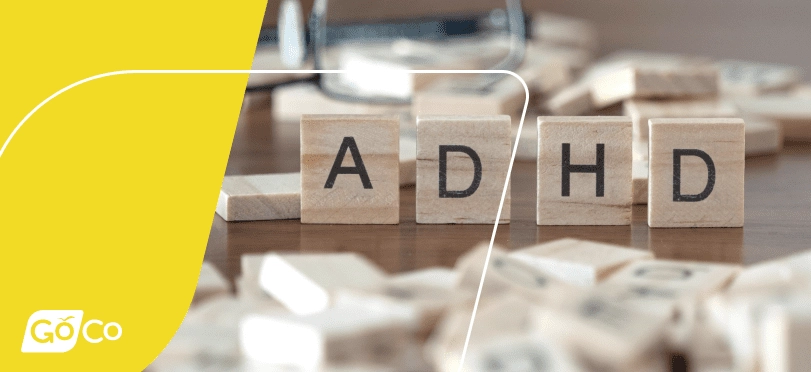Managing and Supporting Employees with ADHD
Impactful management methods to set team members with ADHD up for success
by Nick Schurk - May 31st, 2023
Ensuring HR managers and business owners can build and foster a healthy working environment is the foundation for any successful organization. While it may seem like a straightforward task, there are numerous specific details that you must consider to support all of your team members effectively.
Neurodevelopmental disorders such as Attention Deficit Hyperactivity Disorder (ADHD) can impact a person's social, educational, and career success. Unfortunately, despite its prevalence, ADHD, especially in adults, is often misunderstood, misdiagnosed, or ignored, resulting in interpersonal and workplace difficulties.
ADHD affects attention, hyperactivity, and impulsivity. With a prevalence rate of approximately 2.5% to 5% in adults, employers must understand ADHD's impact and provide the necessary support for their employees.
This blog discusses the importance of understanding ADHD in the workplace, symptoms, challenges faced by individuals with ADHD at work, and strategies to help manage ADHD symptoms in the workplace.
What is ADHD?
ADHD is a condition that affects the brain's development and causes frequent inattention, impulsiveness, and hyperactivity. These symptoms can disrupt normal functioning and development. It's often diagnosed in children but can persist into adulthood, affecting work, home, and social tasks.
Differences Between ADD and ADHD
The terms Attention Deficit Disorder (ADD) and ADHD often create confusion. Historically, ADD referred to individuals having difficulty focusing but without hyperactivity or impulsiveness, while ADHD encompassed both inattention and hyperactivity.
However, medical terminology has largely phased out ADD. Since the late 1980s, the official diagnostic term is ADHD, with various types including a "predominantly inattentive type" - previously known as ADD. This shift acknowledges that inattention is a common element in all forms of ADHD, regardless of hyperactivity presence.
Thus, even if some people still use the term ADD, especially those diagnosed before the classification change, it's now generally included under the ADHD umbrella.

Source: Neurodivergent Insights
Types of ADHD
ADHD manifests in three major types:
Inattentive: Symptoms include difficulty being attentive, following through on tasks, organizing, and handling details.
Hyperactive-impulsive: Manifests with hyperactivity, excessive talking, impulsiveness, and a tendency to interrupt others.
Combined: Combines both Inattentive and Hyperactive-impulsive ADHD symptoms.
Workplace Challenges for People with ADHD
According to Children and Adults with Attention Deficit Hyperactivity Disorder (CHADD), there are specific hurdles that people with ADHD often experience, specifically in a professional setting. The main challenges include:
Distractibility
Impulsivity
Hyperactivity
Poor memory
Boredom-blockouts
Difficulty with time management
Procrastination
Difficulty maintaining long-term projects
Distractibility and procrastination can make it challenging for individuals with ADHD to prioritize and remain focused on tasks. Impulsiveness can result in quick decisions or behaviors that can be counterproductive in the workplace. Time management difficulties can make it hard for individuals with ADHD to complete projects within the allocated time.
6 Strategies for Managing ADHD at Workplace
To help employees with ADHD at the workplace, employers and HR departments can adopt some strategies, including:
1. Avoiding overstimulation
Since distractibility is a common obstacle, counter that by allowing your team members to work in a more solitary environment or even take their work home if possible. If your company is remote or offers a remote option, that would be a great solution!
2. Prioritizing stress management and self-reflection
Emphasize relaxation efforts and communicate the importance of your team being in a peaceful state of mind. Try to anticipate and eliminate potential triggers before they become an issue and cause burnout.
3. Encouraging frequent breaks
Individuals with ADHD frequently struggle to concentrate on monotonous or solitary activities for extended periods. Encourage them to take breaks when needed - get a drink of water or coffee, take a little walk, or do anything to break up the monotony of the workday. All of this has a huge impact on mental health and well-being.
4. Using checklists
Memory is also a concern in this case. Utilize to-do lists so your team can refer to the objectives if needed. This tip isn't just specific to those with ADHD. Everyone lets things slip sometimes. Keeping a written record of your agenda can be a lifesaver!
5. Setting project benchmarks
Time management and maintaining long-term projects can be a pain point for people with ADHD. Think about mapping out benchmarks of what objectives need to be met by what date so that your team always knows what's coming up and expected. Also, breaking more significant projects into chunks makes them seem less daunting and easier to manage!
6. Emphasizing open communication
Social interactions can seem challenging, especially with authority figures within your organization. You should tell your team that they can confide in you with questions or concerns and that you will support them throughout.
Understanding and honoring your employees' needs is fundamental to respecting their rights and dignity. This principle stands at the heart of building an inclusive and supportive workplace. Every individual brings their unique complexities, backgrounds, and ways of working, which merit understanding and consideration.
8 Benefits of Supporting Employees with ADHD
Employees diagnosed with ADHD bring unique talents and perspectives to the workplace. Employers who actively support and accommodate these employees experience huge benefits, which can foster a more positive and productive work environment.
Here are a few of the benefits of supporting employees with ADHD:
Improved Morale: When employers show understanding and flexibility, employees with ADHD feel more appreciated and accepted. This improves overall morale in the workplace, creating a more positive work environment for all employees.
Increased Job Satisfaction: Employees with ADHD who receive support and accommodations are likelier to enjoy their work, leading to greater job satisfaction. This contributes to a happier, more content workforce.
Enhanced Productivity: Employees with ADHD often have unique ways of thinking and problem-solving. They can be highly productive when allowed to work in a manner that suits their style.
Leveraging Unique Talents: Many individuals with ADHD are noted for their creativity, intuitive thinking, and problem-solving skills. Businesses can tap into these unique abilities by supporting these employees, driving innovation and success.
Strengthening Inclusion: Supporting employees with ADHD helps to foster a culture of inclusion. This benefits the individuals directly and sets a positive example for the entire organization, leading to a more diverse and inclusive workplace.
Improving Job Retention: With proper accommodations and support, employees with ADHD are more likely to stay with a company, reducing turnover and associated recruitment and training costs.
Better Symptom Management: Accommodations such as flexible work hours or a quiet work environment can help employees with ADHD manage their symptoms more effectively during work hours. This can lead to better focus, fewer distractions, and better job performance.
It's the Right Thing to Do: Providing support and accommodations for employees with ADHD reflects a company's commitment to fairness, equality, and social responsibility. Regardless of the tangible benefits, supporting all employees, including those with ADHD, is simply the right and ethical thing to do. This underscores a company's values and reinforces its reputation as an inclusive, equitable, and socially responsible employer.
Learning about neurodevelopmental disorders like ADHD is not merely a matter of organizational efficiency or team longevity; it's about recognizing and valuing the individuality of your team members. It's about accepting their unique challenges and strengths and, more importantly, honoring their human right to feel understood, accepted, and supported.
Therefore, it's crucial to invest time and effort into understanding how ADHD affects adults in the workforce. Seek to learn how you can best support your ADHD team members with genuine respect, patience, and cooperation. Doing so is not just about building excellent professional relationships or fostering a long-lasting team but primarily about doing what's right and fair. In the process, you will nurture a thriving, resilient, and inclusive team where everyone feels valued and supported.
Common Myths About ADHD
The Attention Deficit Disorder Association provides the following information.
ADHD Only Affects Children
There seems to be a widely believed but incorrect sentiment that ADHD only affects kids and is simply a phase they will outgrow. While some kids end up outgrowing it, around 29% of those adults will carry ADHD symptoms into their older years. Unfortunately, over 80% of these adults also have at least one more psychiatric disorder besides ADHD, such as depression, anxiety, or substance abuse.
Those with ADHD are Less Intelligent
This could not be further from the truth! People with ADHD are often dismissed as less intelligent simply because they require different learning and working styles. Many people with ADHD are brilliant and often, more creative than those who don't have ADHD. According to the ADDA, "they're also better at managing crises and are more intuitive thinkers."
Final Thoughts
Understanding ADHD's unique challenges, coping strategies, and support structures in the workplace is critical for maintaining an inclusive working environment. Extending support to individuals with ADHD can help improve their job satisfaction, productivity, and avoidance of burnout.
Employers can offer support by creating an environment accommodating various work styles, providing necessary accommodations, and understanding the unique skills, strengths, and challenges of individuals with ADHD. With these strategies, we can create all-inclusive and supportive workspaces that allow individuals to reach their full potential.
Recommended Posts
21 Statistics on Working From Home & Remote Work in 2023
Blog Articles
35+ Employee Engagement Survey Questions You Must Ask
Blog Articles
Search...
Product
GoCo
Resources
Articles
eBooks
Webinars
Customer Stories



